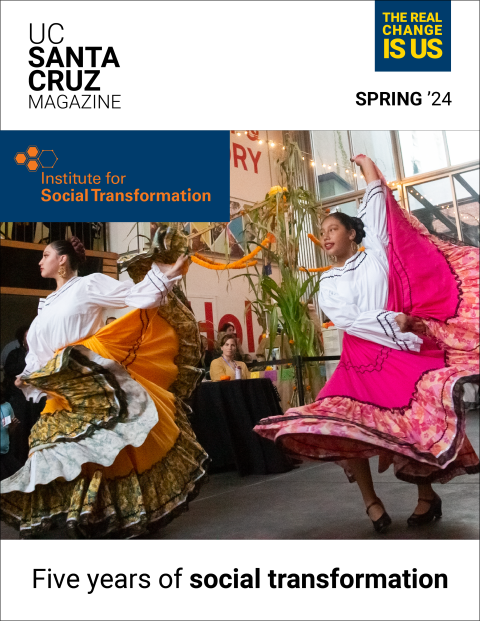A UCSC program that provides an academic bridge for community college students interested in pursuing careers in research science has received a five-year, $1.1 million grant from the National Institutes of Health (NIH).
Since 1994, the ACCESS Program at UCSC has been funded by three-year grants from the National Institute for General Medical Sciences (NIGMS) under the Bridges to the Baccalaureate Program. Directed by Phil Crews, professor of chemistry and biochemistry, the ACCESS initiative offers enrichment activities at community colleges during the academic year and research opportunities at UCSC during the summer.
The program is a partnership between UCSC and five neighboring community colleges: Cabrillo College, Gavilan College, Hartnell College, Monterey Peninsula College, and San Jose City College. It focuses on students whose academic goals and potential have been affected by disadvantageous circumstances and students who belong to groups with below-average UC enrollment rates. According to Crews, educators have found that research-based activities provide a powerful tool to stimulate students just beginning their college careers.
"Enrichment activities that plug into biomedical research being carried out by UCSC faculty and staff provide the means to propel the program forward," Crews said. "Our continuing goal is to strengthen academic skills, increase university transfer and retention rates, and promote interest and participation in scientific research."
The renewed grant will enable UCSC to continue the ACCESS Summer Research Institute, in which 12 to 14 students each summer spend eight weeks living on campus and participating in research projects in chemistry, microbiology, molecular biology, biochemistry, and environmental toxicology.
Pam D'Arcey, associate director of the program, said the grant is usually renewed in May but was delayed this year because of the economic climate. News of continued funding for the program came in September, just as this year's summer ACCESS students were presenting their research posters to professors, mentors, and family members.
"I was ecstatic when I heard the news," D'Arcey said. "The ACCESS program is extremely valuable to science students at our community colleges, especially now that they are facing the loss of so many academic support programs due to budget cuts."
The NIGMS panel that reviewed the program acknowledged that it was very strong and has seen tremendous successes. The panel's report noted that the ACCESS program "is poised to make even greater strides by transitioning minority students into UCSC in a way that they complete the undergraduate degree and move toward graduate degree programs."
Additional information about the program is available on the ACCESS Program web site.


